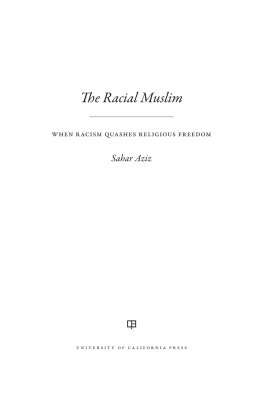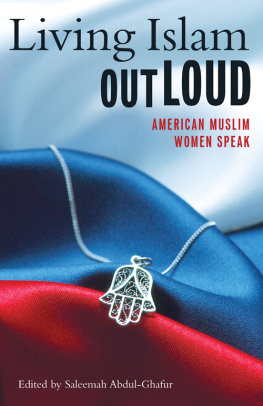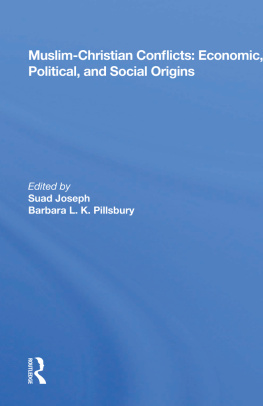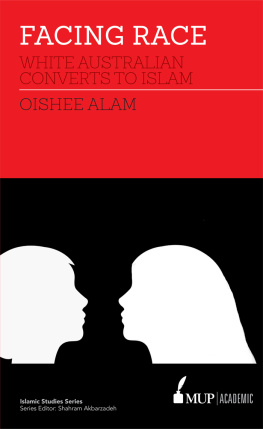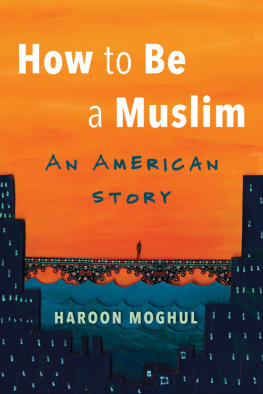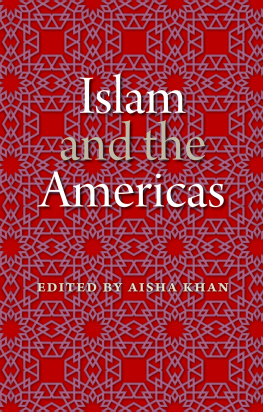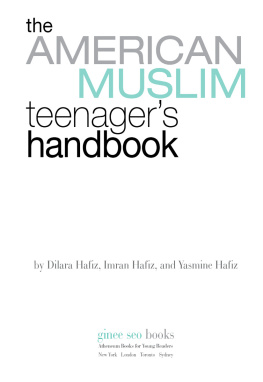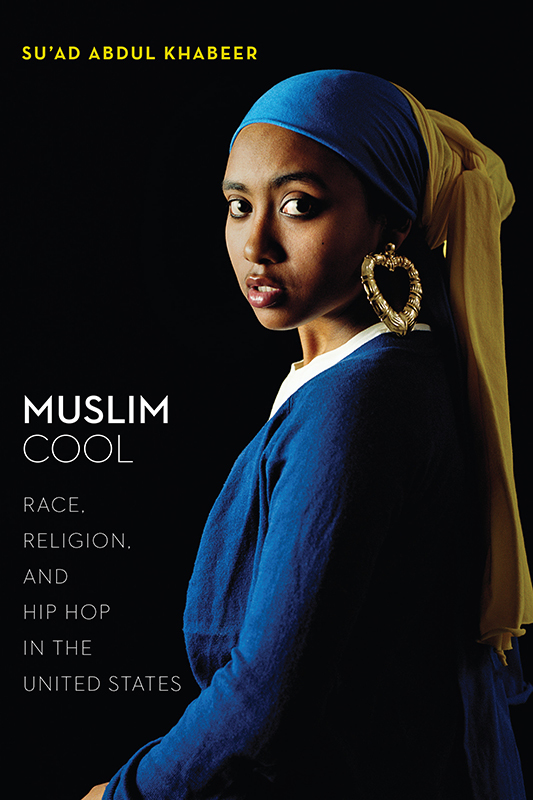
Muslim Cool
Muslim Cool
Race, Religion, and Hip Hop in the United States
Suad Abdul Khabeer

NEW YORK UNIVERSITY PRESS
New York
NEW YORK UNIVERSITY PRESS
New York
www.nyupress.org
2016 by New York University
All rights reserved
References to Internet websites (URLs) were accurate at the time of writing. Neither the author nor New York University Press is responsible for URLs that may have expired or changed since the manuscript was prepared.
ISBN : 978-1-4798-7215-2 (hardback)
ISBN : 978-1-4798-9450-5 (paperback)
For Library of Congress Cataloging-in-Publication data, please contact the Library of Congress.
New York University Press books are printed on acid-free paper, and their binding materials are chosen for strength and durability. We strive to use environmentally responsible suppliers and materials to the greatest extent possible in publishing our books.
Manufactured in the United States of America
10 9 8 7 6 5 4 3 2 1
Also available as an ebook
In the name of Allah
For the love of Muhammad
To honor the Ancestors
In celebration of my People
Contents
Like a hip hop awardee at the Grammys, first and foremost I would like to thank God. I thank Allah for making all things possible and ask Allah to purify my intentions and accept my efforts. I thank my mother, Amina Amatul Haqq, for her many sacrifices and my grandmother, Carmen Weeks, for her many gifts. I am grateful for Sharifa, for my Abuela Gertrude, and for Kareem, Faatima, and Nafiisah (for cover ideas!), for Anika Sabree, and Saleemah Abdul-Ghafur who always answer my calls, and for Majida Abdul-Karim, Aisha Tour, Sajdah Sabree, Azizah Kahera, Maisha Aziz, Saudah Saleem, Jannah Abdur-Rahman, Sameera Fazili, Kamilah Munir, Siddeeqah Sharif, Tannaz Haddadi, Adnan Zulfiqar, and Kendric Nixon for always holding me down. I am forever in awe of and inspired by all the bold, brilliant, beautiful, Black believing women who built this thing, Al-Islam in America, with their bare hands, like my aunties Jameelah Jalal Uddin, Aaliyah Abdul-Karim, Kareemah Abdul Kareem, Jamillah Adeeb, Sadiyah Abdul-Hakim, Adele Saleem, Umilta Al-Uqdah, and Mama Rakiah Abdur-Rahim. I also offer deep thanks to other family and friends, far too many to name here, for always believing in me and teaching me the importance of this kind of work. I also thank Amir Al-Hajj Tahir Umar Abdullah, my loving accomplice in this beautiful struggle.
There are many folks in the academy who helped move this project from idea to reality. I am certain that without Carolyn Rouses support, this book would not be in our hands today. She always challenged me to think more deeply, describe more richly, and locate myself in this discipline. I thank Lawrence Rosen for keeping it real, Carol Greenhouse for listening and guidance, and John J. Jackson, Jr., for always making time for my ideas and taking them seriously. I also must acknowledge the rest of the faculty and staff in the Department of Anthropology and the now renamed Department of African American Studies (Go head!) at Princeton University for intellectual community. Alf Shukr to Charis Boutieri, Sami Hermez, and Erica Weiss for their intellectual fellowship and compassionate friendship, which included reviewing chapter drafts and fielding my writing anxieties. Special thanks also to John Voll at Georgetown University for support early on in my career. Furthermore, I owe great thanks to Amina Wadud, Aminah McCloud, Halimah Tour, Sulayman Nyang, Jon Yasin, Sherman Jackson, Amir Al-Islam, Zain Abdullah, and Jamillah Karim for modeling what it means to be Black, Muslim, and an engaged scholar.
I also want to give a special shout out to an amazing group of colleague-mentor-friends including my gurus Faedah Totah and Junaid Rana as well as Intisar Rabb, Zaheer Ali, Zareena Grewal, Hisham Aidi, Arshad Ali, Sohail Daulatzai, Maryam Kashani, Nitasha Sharma, Hussein Rashid, Edward Curtis, IV, Maurita Poole, Angela Ards, Jennifer Maytorena Taylor, Dawn-Elissa Fischer, H. Samy Alim, Sylvia Chan-Malik, Julianne Hammer, Rabiah Muhammad, James Braxton Peterson, Margari Azizah Hill, Maryam Griffin, and Tomiko Ballantyne.
My research and writing were supported by the Graduate School, the Center for African American Studies, and the Center for Arts and Policy Studies at Princeton University, the Department of Black Studies at the University of California, Santa Barbara, and the College of Liberal Arts at Purdue University. I am deeply appreciative of Ellen Gruenbaum,Venetria Patton, Evelyn Blackwood, Cornelius Bynum, and all the faculty and staff in Anthropology and African American Studies at Purdue for their mentoring and support of my work. I also would like to extend sincere thanks to Jennifer Hammer, Constance Grady, and everyone at NYU Press for recognizing the merits of my project and for a supportive publication process. Also, thank you Hanna Siurua for making copyediting painless and helping me sound good!
Of course, none of this would have been possible without the generosity of each of my teachers in Chicago and beyond. I have changed most of your real names in these pages yet whether I use your real name or a pseudonym I refer to you all as teacher. You are my teachers because I only know what I know because you allowed me to listen, to ask questions, to share my thoughts (even when we disagreed) and to be around you and yours (even when you thought the whole participant-observation thing was a bit weird). You are my teachers because you taught me and because I continue to learn from you.
I will be forever indebted to all of you, the amazing individuals I encountered in and through IMAN and in the U.S. Muslim community and the ummah, worldwide.
Jazakum Allahu Khairan
Esperanza : Stuff is kind of mashed up, and now [Arab and South Asian U.S. American]sisters are wanting to dress like the [U.S. Black American] sisters they see on stage.... Its girls that are probably first generation here, trying to find the aesthetic that fits them that is not their mothers or from their mothers land, which I can sort of understand since I come from an immigrant [Dominican] background, but what happens is that they start picking from the people that are around them, like the magazine White culture, and then they want to add an urban element cause its a cool thing, cool to be from an urban environment, right? (Laughs)
Suad : What is urban? (Laughs) Is that a euphemism?
Esperanza : I dont even know what it is. (Laughs) You wanna wear cargo pants?... See, I have a camouflage scarf, Ive worn it only once because this Pakistani girl walked up to me like (mimics a voice) This is so cool and I was like [to myself] I cant even pretend like thats OK with me (Laughter). And its a girl that I love! Now I want to back this up by saying I have been wearing camouflage my whole life, Im the camouflage queen!... I wear it a lot because I like it but also I feel like I can, its appropriate for me to wear it because my brother was in war, people! (Laughs) Like geez, this is my actual surname on my jacket. Anyway so this sister comes just really sincerely, I really like your scarf, where can I get it from? and I was kind of like, Like, thank you, but I dont know really what else to say.
Its a compliment but in another way its really a thievery because we dont have much, right? Like where does culture come from? It comes from people who dont have much. Thats where hip hop comes from, thats where house music came from. Thats where tying your hair up [in a scarf], wearing fatigues, because you aint got no other clothes, right? So you got to make do with what you have, and when someone is taking that, you dont have anything left because you dont have much
Next page

